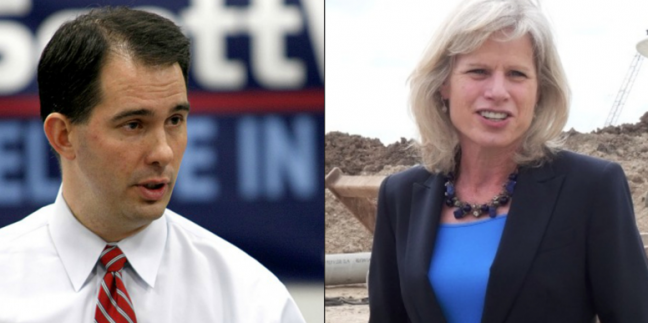A letter to the editor was published earlier this month from the Executive Director of the Wisconsin Federation of College Republicans Ben Giles regarding Democratic gubernatorial candidate Mary Burke. While I acknowledge the letter’s purpose was not necessarily meant to be impartial, too often we observe blatant omission of facts for the sake of making an appealing partisan argument (from both sides, I might add).
It is true that Maryland Gov. Martin O’Malley campaigned with Burke and embraced a state-exchange program offered by the Affordable Care Act, which may cost his state $40 to 50 million. Though, before we call O’Malley a champion of “Obama’s failed policies,” further investigation is in order. O’Malley, who Governing Magazine has named a Public Official of the Year, has also ‘championed’ policies to invest more heavily in education, while cutting spending and taxes. Point being, one specific shortfall in the struggling state-exchange program does not automatically correlate to a poor executive.
While Burke has not declared an outright opposition to the state-exchange programs, she certainly has made no indication she wishes Wisconsin to move toward it. In fact, in a weekly article outlining gubernatorial platforms by the Journal Sentinel, Burke explicitly does not address the state-exchange program as a part of her healthcare policy. If anything, her refusal to take a stance is more concerning. Instead, she attacked Walker’s refusal to accept the Medicaid expansion option in the ACA, which Giles conveniently left out when criticizing, “Obama’s failed policies.”
Walker’s rejection of the Medicaid expansion is estimated to cost $206 million. He rejected the federal government’s offer to pay for 100 percent of Medicaid costs in the state over the next three years and slowly lowering this percentage to 90 by 2020. Instead, he decreased eligibility for low-income state residents, shooing them away to purchase their own insurance in a system that was not designed to account for them. Furthermore, an estimate from the Legislative Fiscal Bureau showed that it left 87,000 more people uninsured – at the cost of the taxpayer.
The governor’s reasoning to reject the aid was that he did not trust the federal government to follow through with the funds. An odd excuse indeed; the federal government would be revoking spending written in a federal law, of which they had already been paying 60 percent. Rejecting federal funds is also rejecting taxpayer money originally sent from Wisconsin and this is not Walker’s first offense (I would need a whole column to discuss the high-speed rail). This could be a mere political maneuver by Walker to look tough against “failed liberal policies,” while eyeing a bid in the 2016 GOP primary. His party solidarity comes at the cost of the well-being of his constituents.
Seemingly at all levels of government, partisan politics dominate the American political landscape. We pledge loyalty to one of two political parties and their candidate, and the actual issues are examined only after this loyalty is declared. Politicians should not be applauded for sticking close to their party’s platform, particularly when it hinders progress. Now, this may already be a deeply institutionalized component of politics – but we are living in a time where information is so easily accessible. I doubt political advocacy groups will modify their biased advertisements and publications, but we as readers, voters and constituents should look beyond embellished (and sometimes blatantly false) headlines before drawing any irrational conclusions.
Omer Arain ([email protected]) is a sophomore majoring in political science and economics.














